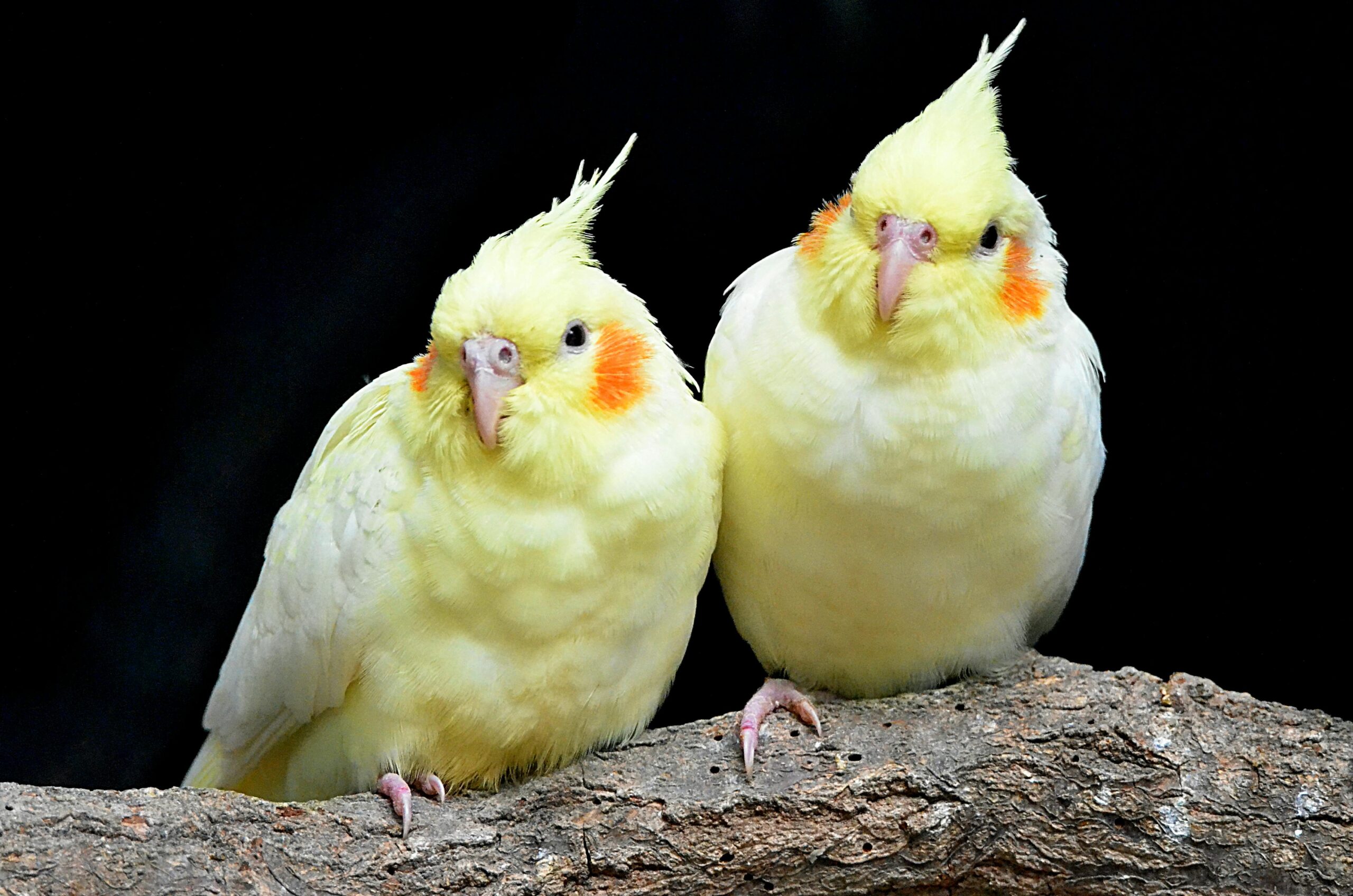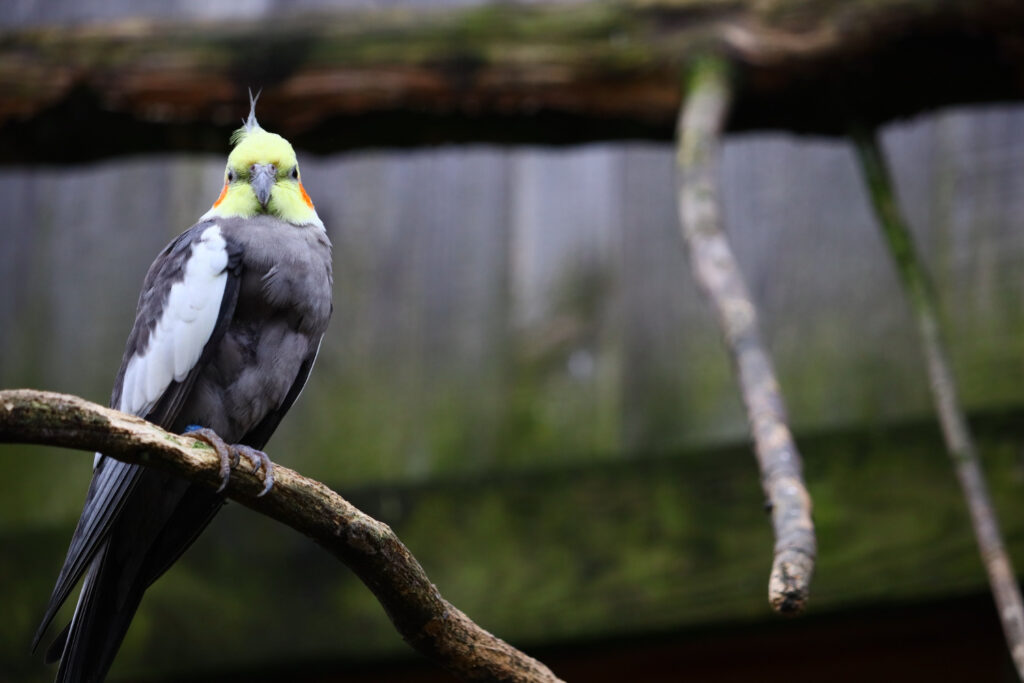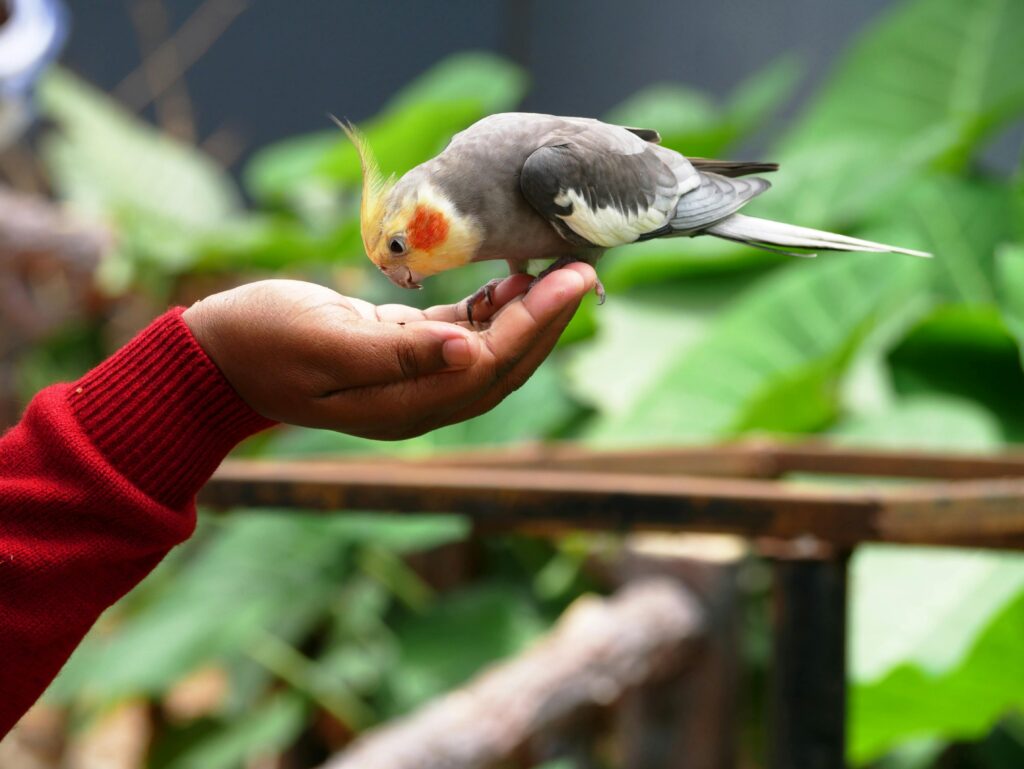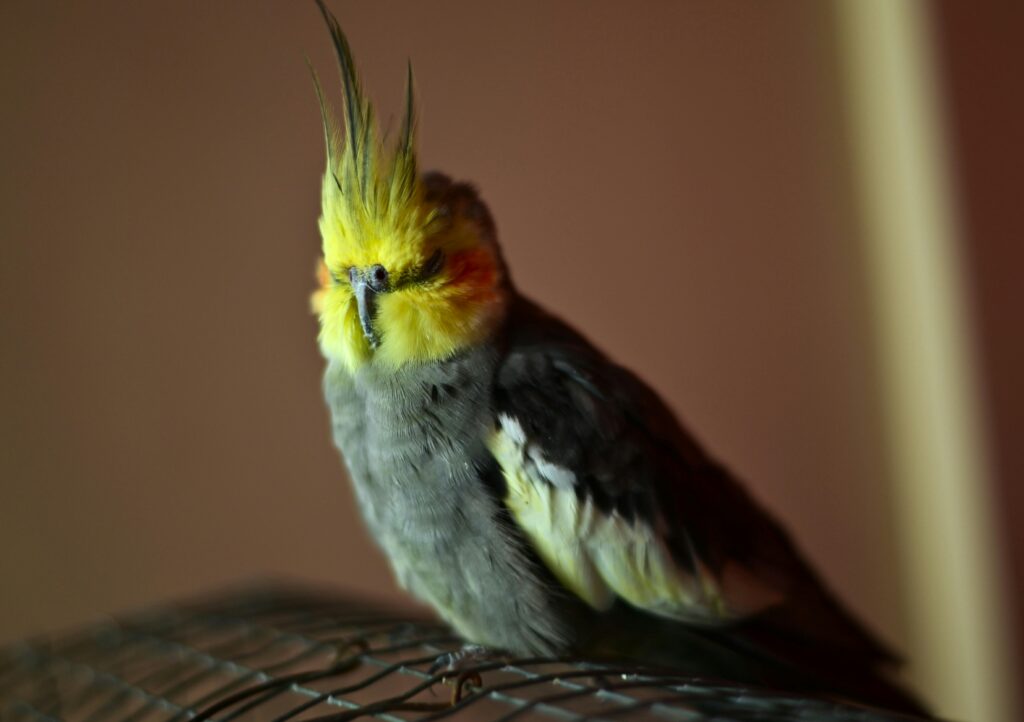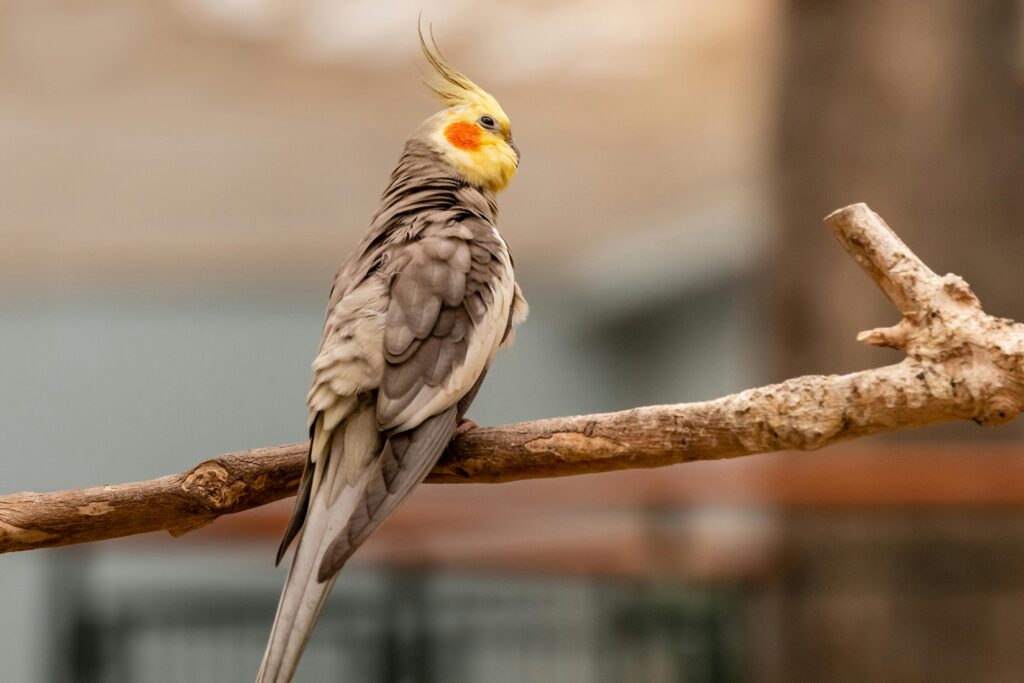Cockatiels, with their enchanting whistles and endearing personalities, have captivated avian enthusiasts around the globe. Yet, the question often arises regarding the lifespan of these feathered companions, adding a layer of importance to their care and habitat:
In captivity, cockatiels can thrive, surpassing their wild counterparts in longevity.
As of my knowledge cutoff in 2023, the consensus among aviculturists and bird enthusiasts confirms that cockatiels enjoy a significant lifespan when provided with proper care and a nutritious diet.
Cockatiel Lifespan Fundamentals
Cockatiels, with their distinctive crest and pleasant personalities, are among the most cherished members of the parrot family in domestic settings. Their lifespan is a testament to how environment, care, and genetics can interplay to determine an individual bird’s vitality. Properly cared for, these birds can grace their caretaker’s lives for a considerable duration, forging bonds that may span several decades. With this responsibility comes the imperative to understand the conditions conducive to their wellbeing and longevity.
In captivity, where threats like predators and harsh conditions are mitigated, cockatiels often reach impressive ages that exceed average wild lifespans. They require comprehensive care—encompassing balanced nutrition, mental stimulation, and regular veterinary check-ups—and a safe habitat that protects them from household hazards. Under such favorable conditions, it is not uncommon for these engaging companions to achieve lifespans of 15 to 20 years or beyond, accentuating the deep commitment required from those who welcome them into their homes.
Average Lifespan in Captivity
In favorable domestic environments, cockatiels commonly thrive for 15 to 20 years. These years reflect the careful attention paid to captive birds’ nutrition, enrichment, and health needs.
These engaging avian companions can remarkably surpass the 20-year mark with optimal care. Their longevity in such settings underscores the commitment of dedicated caregivers who foster an ideal habitat.
A cockatiel has been known to live in captivity for the past 30 years.
Longevity for cockatiels is not merely about surviving but thriving through quality care, which includes mental stimulation, affectionate interaction, and preventive veterinary medicine, all contributing to their extended lifespan.
Wild Cockatiels vs. Captive Ones
Lifespan discrepancies between wild and captive cockatiels hinge on numerous environmental factors.
- Predation and Food Scarcity: In the wild, cockatiels face threats from predators and food shortages, which can drastically shorten their lifespan.
- Disease and Parasitism: Wild cockatiels are more susceptible to diseases and parasite infestations without access to veterinary care.
- Harsh Weather: These birds must also survive extreme weather conditions that can severely impact their longevity.
- Stress Factors: Stress caused by environmental factors can compromise wild cockatiels’ immune systems.
In captivity, protection from predators and consistent nutrition extend their lives significantly.
Captive cockatiels can live well beyond their wild counterparts with access to veterinary care and optimized living conditions.
Influencing Factors on Longevity
The lifespan of cockatiels is significantly shaped by a matrix of care-related elements, including dietary regimen, habitat quality, and psychological wellbeing. Proper nutrition, composed of a balanced diet with adequate vitamins and minerals, underpins their health and longevity. Environmental enrichment and spatial considerations are pivotal for mental stimulation and preventing behavioral problems. Moreover, regular health check-ups and vaccinations are indispensable for identifying and thwarting potential diseases. Insidious threats such as toxic exposure to household substances, inadequate temperature control, and the absence of social interaction can also markedly curtail their life expectancy. Consequently, attentive stewardship becomes paramount in nurturing a cockatiel to its maximum lifespan potential.
Diet’s Role in Cockatiel Health
A well-crafted diet is crucial for cockatiels, enhancing vitality and disease resistance, thus extending their lifespan significantly. Varied nutrition fosters robust health.
Nutrient-rich foods form the cornerstone of a cockatiel’s longevity. Pellets, seeds, and fresh produce should be judiciously balanced.
It is paramount that cockatiels receive a medley of seeds, pellets, vegetables, and fruits, which contributes to a bolstered immune system. The diet must replicate natural foraging behavior, promoting physical health and psychological engagement. Vitamins, particularly A and C, and minerals like calcium are pivotal for maintaining avian vigor.
The meticulous calibration of a cockatiel’s diet to provide optimal levels of proteins, carbohydrates, fats, and micronutrients increases the likelihood of a lengthy life. Access to various foods prevents nutritional deficiencies that can lead to health complications. It is essential to be vigilant about the quality and freshness of their sustenance, as spoiled or inappropriate food can harm their health. In summary, nutritional excellence is not an accessory but a fundamental necessity for cockatiels’ longevity.
Impact of Environment and Enrichment
The enclosure a cockatiel inhabits significantly shapes its lifespan. A spacious, clean cage, free from pollutants and hazards, promotes a healthy existence and mitigates stress, fostering a conducive living environment that can prolong their days.
Sufficient natural lighting is key to circadian regulation and health maintenance.
Conversely, environmental stressors such as loud noises, lack of stimulation (monotonous surroundings or minimal social interaction), and inadequate care can diminish their lifespan.
Cockatiels thrive in environments with ample mental stimulation through toys, puzzles, and flight opportunities, echoing their instinctual behaviors in the wild and enhancing their wellbeing.
Providing a variety-rich habitat is fundamental to mental acuity for cockatiels, offering them an array of materials, perches, and nesting areas and encouraging natural behaviors crucial for their overall health and prolonged lifespan.
Ultimately, the extent to which a cockatiel’s needs are met in captivity profoundly influences their longevity. Continuous enrichment and attentive care can result in lifespans that exceed average expectancy.
Common Health Concerns for Cockatiels
Cockatiels, while generally hearty avians, are susceptible to various health issues impacting their longevity, especially in captivity. Respiratory ailments caused by airborne contaminants or poor ventilation are commonplace. Furthermore, nutritional deficiencies stemming from an imbalanced diet can lead to conditions like obesity, fatty liver disease, and feather plucking. Parasitic infections, both internal and external, are additional concerns that can adversely affect a cockatiel’s health. Regular veterinary check-ups, monitoring their environment, and adherence to a balanced nutritional regimen are critical in mitigating these risks and ensuring the welfare and longevity of these cherished companions.
Recognizing Signs of Aging
As cockatiels approach their senior years, they often exhibit physical and behavioral changes indicative of aging. Feathers may lose their luster, and you might observe decreased activity levels.
Behavioral shifts, such as increased irritability or changes in vocalization patterns, can signal advancing age.
Owners should be attentive to subtler signs such as a decline in their grip strength, increasing preference for resting on lower perches, or modifications in eating habits, which could suggest the onset of age-related conditions or discomfort.
The presence of age-related health issues may call for adaptations in care—for example, implementing dietary modifications to cater to an older bird’s nutritional needs or adjusting the habitat to accommodate reduced mobility. It is essential to enter this stage with a spirit of compassion and a readiness to provide the necessary support and adjustments to maintain quality of life. Regular consultations with an avian veterinarian are essential to address and manage any age-related health concerns effectively.
Preventive Health Measures
Owners must adopt comprehensive preventive health measures to ensure cockatiels enjoy a long, healthy life. A balanced diet rich in vitamins and minerals and adequate exercise is fundamental to their wellbeing.
Routine veterinary check-ups are obligatory for early disease detection and management. Environmental enrichment helps mitigate stress and behavioral problems, ultimately improving overall health.
Providing clean, spacious habitats with appropriate temperature and humidity levels is essential to a cockatiel’s health, as it minimizes exposure to harmful pathogens and stressors that contribute to disease. A thorough cleaning regimen should be enforced to prevent the build-up of waste and the proliferation of bacteria and parasites.
Moreover, guardians of cockatiels should be vigilant for signs of illness, such as changes in plumage, behavior, and droppings. Quarantining new or sick birds to control disease transmission is a prudent practice. Additionally, educational resources on avian health can empower owners to make informed decisions about their cockatiel’s care and to recognize when professional veterinary intervention is necessary. In turn, this proactive approach to preventive care can extend a bird’s lifespan, enhancing its quality and length of life.
Maximizing Cockatiel Life Expectancy
To ensure a cockatiel reaches its potential life span, providing a variety-rich diet is imperative, mimicking the nutritional profiles found in its natural habitat. This includes a balance of seeds, fresh fruits, vegetables, and high-quality pellets complemented by clean water. Adequate nutrition fortifies immunity and contributes to a cockatiel’s longevity, reducing susceptibility to common ailments that could truncate life.
Regular interaction and mental stimulation are paramount for maintaining a cockatiel’s cognitive and emotional wellbeing. Incorporating daily playtime and training encourages mental understanding while also forging a stronger human-bird bond, which has been shown to impact their overall vitality and life expectancy positively.
Essentials of Proper Cockatiel Care
Attention to their environment and diet is crucial to maximize a cockatiel’s lifespan.
- Spacious Cage: Provide a cage with ample space for flight and exercise.
- Balanced Diet: Ensure a mixture of seeds, vegetables, fruits, and quality pellets.
- Regular Interaction: Dedicate time daily for socialization and mental stimulation.
- Clean Environment: Maintain a clean cage to prevent bacterial and fungal infections.
- Veterinary Care: Schedule regular check-ups and monitor for signs of illness.
These birds demand a thoughtful approach to their mental and physical health.
Cockatiels thrive with routine and predictability, which fosters a sense of security and contentment.
Regular Veterinary Check-ups Importance
Regular veterinary visits are pivotal for maintaining a cockatiel’s health and extending its lifespan.
- Early Detection: Veterinarians can identify and treat health issues before they become severe.
- Vaccinations: Necessary vaccinations are administered to prevent common avian diseases.
- Nutritional Guidance: Experts provide diet recommendations to ensure optimal health.
- Parasite Control: Routine check-ups ensure the prevention and treatment of parasitic infections.
- Behavioral Consultation: Veterinarians can offer insights into behavioral changes that may indicate health problems.
Consistent veterinary care ensures that any subtle changes in health are noted and addressed promptly.
Routine check-ups are a cornerstone of safeguarding a cockatiel’s wellbeing and quality of life.
